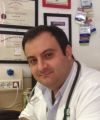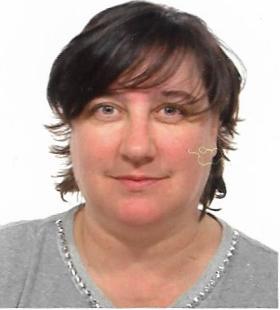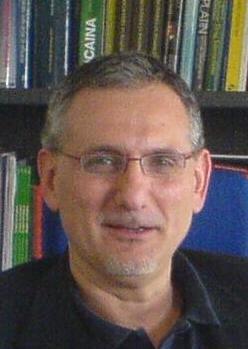Studiare
In questa sezione è possibile reperire le informazioni riguardanti l'organizzazione pratica del corso, lo svolgimento delle attività didattiche, le opportunità formative e i contatti utili durante tutto il percorso di studi, fino al conseguimento del titolo finale.
Calendario accademico
Il calendario accademico riporta le scadenze, gli adempimenti e i periodi rilevanti per la componente studentesca, personale docente e personale dell'Università. Sono inoltre indicate le festività e le chiusure ufficiali dell'Ateneo.
L’anno accademico inizia il 1° ottobre e termina il 30 settembre dell'anno successivo.
Calendario didattico
Il calendario didattico indica i periodi di svolgimento delle attività formative, di sessioni d'esami, di laurea e di chiusura per le festività.
| Periodo | Dal | Al |
|---|---|---|
| INF BZ - 1° anno 1° sem | 3-ott-2017 | 21-dic-2017 |
| INF BZ - 2° anno 1° sem | 9-ott-2017 | 21-dic-2017 |
| INF BZ - 3° anno 1° sem | 9-ott-2017 | 21-dic-2017 |
| INF BZ - 1° anno 2° sem | 29-gen-2018 | 23-apr-2018 |
| INF BZ - 3° anno 2° sem | 15-mar-2018 | 27-apr-2018 |
| INF BZ - 2° anno 2° sem | 23-apr-2018 | 8-giu-2018 |
| Sessione | Dal | Al |
|---|---|---|
| INF BZ- sessione invernale 1-2-3 anno | 8-gen-2018 | 31-gen-2018 |
| INF BZ- sessione estiva 1-2 anno | 11-giu-2018 | 22-giu-2018 |
| INF BZ- sessione estiva 3 anno | 18-giu-2018 | 29-giu-2018 |
| INF BZ- sessione autunnale 1 anno | 12-set-2018 | 29-set-2018 |
| INF BZ- sessione autunnale 2 anno | 20-set-2018 | 28-set-2018 |
| INF BZ- sessione autunnale 3 anno | 24-set-2018 | 4-ott-2018 |
| Sessione | Dal | Al |
|---|---|---|
| 1^ SESSIONE | 1-ott-2018 | 30-nov-2018 |
| 2^ SESSIONE | 1-mar-2019 | 30-apr-2019 |
| Periodo | Dal | Al |
|---|---|---|
| Festa di Ognissanti | 1-nov-2017 | 1-nov-2017 |
| Festa Immacolata Concezione | 8-dic-2017 | 8-dic-2017 |
| Vacanze natalizie | 22-dic-2017 | 7-gen-2018 |
| Vacanze di Pasqua | 30-mar-2018 | 3-apr-2018 |
| Festa della liberazione | 25-apr-2018 | 25-apr-2018 |
| Festa della Repubblica | 2-giu-2018 | 2-giu-2018 |
| Descrizione | Periodo | Dal | Al |
|---|---|---|---|
| INF BZ 3° anno 1^ esp | INF BZ 3° anno 1^ esp | 2-feb-2018 | 14-mar-2018 |
| INF BZ 2° anno 1^ esp | INF BZ 2° anno 1^ esp | 12-feb-2018 | 16-mar-2018 |
| INF BZ 2° anno 2^ esp | INF BZ 2° anno 2^ esp | 19-mar-2018 | 21-apr-2018 |
| INF BZ 1° anno 1^ esp | INF BZ 1° anno 1^ esp | 2-mag-2018 | 8-giu-2018 |
| INF BZ 3° anno 2^ esp | INF BZ 3° anno 2^ esp | 2-mag-2018 | 12-giu-2018 |
| INF BZ 1° anno 2^ esp | INF BZ 1° anno 2^ esp | 25-giu-2018 | 29-lug-2018 |
| INF BZ 3° anno 3^ esp | INF BZ 3° anno 3^ esp | 2-lug-2018 | 4-ago-2018 |
Calendario esami
Gli appelli d'esame sono gestiti dalla Unità Operativa Segreteria Corsi di Studio Medicina.
Per consultazione e iscrizione agli appelli d'esame visita il sistema ESSE3.
Per problemi inerenti allo smarrimento della password di accesso ai servizi on-line si prega di rivolgersi al supporto informatico della Scuola o al servizio recupero credenziali
Per dubbi o domande leggi le risposte alle domande più frequenti F.A.Q. Iscrizione Esami
Docenti
Augschiller Martha
 liliana.favari@univr.it
liliana.favari@univr.it
 astrid.kustatscher@claudiana.bz.it
astrid.kustatscher@claudiana.bz.it
 sylvia.lintner@sabes.it
sylvia.lintner@sabes.it
 m.mussner@virgilio.it
m.mussner@virgilio.it
Piano Didattico
Il piano didattico è l'elenco degli insegnamenti e delle altre attività formative che devono essere sostenute nel corso della propria carriera universitaria.
Selezionare il piano didattico in base all'anno accademico di iscrizione.
1° Anno
| Insegnamenti | Crediti | TAF | SSD |
|---|
Laboratori professionali (primo anno)
2° Anno Attivato nell'A.A. 2018/2019
| Insegnamenti | Crediti | TAF | SSD |
|---|
Laboratori professionali (secondo anno)
3° Anno Attivato nell'A.A. 2019/2020
| Insegnamenti | Crediti | TAF | SSD |
|---|
Laboratori professionali (terzo anno)
| Insegnamenti | Crediti | TAF | SSD |
|---|
Laboratori professionali (primo anno)
| Insegnamenti | Crediti | TAF | SSD |
|---|
Laboratori professionali (secondo anno)
| Insegnamenti | Crediti | TAF | SSD |
|---|
Laboratori professionali (terzo anno)
Legenda | Tipo Attività Formativa (TAF)
TAF (Tipologia Attività Formativa) Tutti gli insegnamenti e le attività sono classificate in diversi tipi di attività formativa, indicati da una lettera.
Fisiopatologia applicata all'infermieristica (2017/2018)
L'insegnamento è organizzato come segue:
INFERMIERISTICA CLINICA
Crediti
3
Periodo
Vedi pagina del modulo
Sede
BOLZANO
Docenti
Vedi pagina del modulo
Obiettivi formativi
------------------------
MM: FARMACOLOGIA GENERALE
------------------------
Obiettivo del modulo di farmacologia generale nel corso di Fisiopatologia applicata all’infermieristica è quello di fornire nozioni generali sulle funzioni e sull’utilizzo dei farmaci, riferite alla farmacodinamica, farmacocinetica, farmacoepidemiologia e farmacovigilanza. Le nozioni di farmacologia sono propedeutiche per lo svolgimento del ruolo dell'infermiere nella gestione e nel controllo delle terapie farmacologiche e nel compito dell'educazione farmacologica nei confronti dei pazienti. Il modulo di farmacologia generale è propedeutico allo studio delle singole classi di farmaci, che inizia dai farmaci antiinfiammatori e antibatterici e che si completerà nel modulo di farmacologia clinica.
------------------------
MM: SEMEIOTICA E FISIOPATOLOGIA
------------------------
Fornire allo studente le nozioni di fisiopatologia generale propedeutici per lo svolgimento del ruolo dell'infermiere nella gestione delle problematiche delle patologie i dei pazienti.
------------------------
MM: INFERMIERISTICA CLINICA
------------------------
------------------------ MM: Infermieristica clinica 1 ------------------------ Il corso si propone di sviluppare nello studente la capacità di riconoscere e definire i segni e sintomi di dolore e della funzione respiratoria alterata. Inoltre si prefigge di indurre nello studente un approccio orientato alla definizione dei problemi del paziente e alla scelta degli interventi di prevenzione e gestione del dolore nonchè della funzione respiratoria alterata. ------------------------ MM: Infermieristica clinica 2 ------------------------ Sviluppare un approccio orientato alla definizione dei problemi, alla scelta degli interventi di prevenzione e gestione delle alterazioni della funzione di eliminazione intestinale e urinaria, della cura del corpo. Accertare con tecniche e modalità strutturate e sistematiche i problemi dell´assistito. Vigilare e monitorare la situazione clinica e psicosociale dei pazienti, identificando precocemente segni e sintomi
------------------------
MM: PATOLOGIA GENERALE
------------------------
Obiettivi Formativi (conoscenze e abilità da conseguire) L’insegnamento introduce lo studente alla comprensione dei concetti base riguardanti le principali malattie ed i processi patogenetici fondamentali, e gli permette di correlarli alle alterazioni cellulari, delle funzioni d’organo, dei meccanismi omeostatici, e alle manifestazioni cliniche di malattia.
Programma
Si rimanda al programma dettagliato scritto in ciascun modulo
Bibliografia
| Autore | Titolo | Casa editrice | Anno | ISBN | Note |
|---|---|---|---|---|---|
| Taylor - Lillis - Lynn | Principi fondamentali dell'assistenza infermierisitica (Edizione 8) | Piccin | 2018 | ||
| A. Conforti, L. Cuzzolin, R. Leone, U. Moretti, G. Pignataro, M. Taglialatela, M. Vanzetta | Farmacologia per le professioni sanitarie (Edizione 1) | Idelson-Gnocchi | 2015 | 978-88-7947-592-1 | |
| Rossi F., Cuomo V., Riccardi C | Farmacologia per le professioni sanitarie (Edizione 1) | Edizioni Minerva Medica | 2014 | 9788877117878 | |
| Stefan Silbernagl & Florian Lang | Taschenatlas der Pathophysiologie | Thieme | 2013 | ||
| Stefan Silbernagl & Agamemnon Despopulos | Taschenatlas der Physiologie | Thieme | 2012 | ||
| G.M. Pontieri | Elementi di Patologia generale per i corsi di laurea in professioni sanitarie (Edizione 3) | Piccin | 2012 | 978-88-299-2130-0 |
Modalità d'esame
test scritto con quesiti a scelta multipla
Prospettive
Avvisi degli insegnamenti e del corso di studio
Per la comunità studentesca
Se sei già iscritta/o a un corso di studio, puoi consultare tutti gli avvisi relativi al tuo corso di studi nella tua area riservata MyUnivr.
In questo portale potrai visualizzare informazioni, risorse e servizi utili che riguardano la tua carriera universitaria (libretto online, gestione della carriera Esse3, corsi e-learning, email istituzionale, modulistica di segreteria, procedure amministrative, ecc.).
Entra in MyUnivr con le tue credenziali GIA: solo così potrai ricevere notifica di tutti gli avvisi dei tuoi docenti e della tua segreteria via mail e a breve anche tramite l'app Univr.
Gestione carriere
Orario lezioni
COMUNICAZIONE DEL PRESIDENTE DEL COLLEGIO DIDATTICO
Carissime Studentesse,
Carissimi Studenti,
di seguito un promemoria relativo alle modalità di erogazione della didattica per il corso di studio in Infermieristica A.A. 2022/2023.
In ottemperanza alle linee guida della Commissione didattica di Ateneo, che prevedono una didattica improntata ad un pieno recupero delle modalità regolari di erogazione in presenza, la Commissione didattica del CdL nella seduta del 29 settembre 2022, ha deliberato il pieno ritorno all’utilizzo della didattica frontale in presenza.
Solo nei casi di comprovata positività al COVID-19, e/o in situazioni di particolare fragilità (sempre correlate alla pandemia) sarà previsto il collegamento sincrono in modalità streaming; a tal proposito ogni Docente, sulla propria pagina web, darà chiare indicazioni sulla modalità di fruizione della didattica.
La modalità asincrona (registrazioni delle lezioni) non è prevista.
Nell’augurarvi un buon Anno Accademico, vi saluto cordialmente
Prof. Paolo F Fabene
Guida ai programmi degli insegnamenti
Guida ai programmi degli insegnamenti
Documenti
| Titolo | Info File |
|---|---|
|
|
pdf, it, 1594 KB, 12/12/22 |
|
|
pdf, it, 1310 KB, 02/09/21 |
Linee guida per riconoscimento cfu
Lo studente che intende chiedere il riconoscimento di moduli o insegnamenti pregressi dovrà presentare domanda, entro il 30 novembre dell’anno accademico in corso, seguendo le indicazioni indicate al link seguente: https://www.univr.it/it/i-nostri-servizi/segreterie-studenti/gestione-carriere-studenti-medicina-e-chirurgia/riconoscimento-crediti-acquisiti-da-una-carriera-pregressa-medicina
Documenti
| Titolo | Info File |
|---|---|
|
|
pdf, it, 295 KB, 09/11/21 |
Area riservata studenti
Attività didattiche regime part-time
Modalità di richiesta
La domanda di iscrizione part-time può essere presentata all'inizio di ogni anno accademico e comunque entro il 30 novembre di ogni anno. Entro lo stesso termine, se necessario, lo studente potrà richiedere di tornare al regime full-time. Al link seguente la pagina del servizio https://www.univr.it/it/i-nostri-servizi/segreterie-studenti/flessibilita-nella-frequenza-dei-corsi/possibilita-di-iscrizione-part-time-e-ripristino-full-time
Una volta inviata la domanda, lo studente concorda in via preventiva con il Coordinatore della didattica professionale (CDP), il piano di studi che intende perseguire nel periodo di part-time compilando il modulo in allegato
Documenti
| Titolo | Info File |
|---|---|
|
|
octet-stream, it, 1309 KB, 21/10/22 |
Prova Finale
Per essere ammessi alla prova finale occorre avere conseguito tutti i crediti nelle attività formative previste dal piano degli studi, compresi quelli relativi all’attività di tirocinio. Alla preparazione della tesi sono assegnati 7 CFU.
La prova è organizzata, con decreto del Ministro dell'Istruzione, dell'Università e della Ricerca di concerto con il Ministro del Lavoro, della Salute e delle Politiche Sociali, in due sessioni definite a livello nazionale.
La prova finale, con valore di esame di Stato abilitante, si compone di:
- una prova pratica che consiste in un elaborato scritto strutturato, semi-strutturata o con domande aperte su casi/situazioni esemplificative della pratica professionale. La prova deve comprendere una selezione di quesiti di problem solving e di quesiti sulla presa di decisione nelle aree di competenza infermieristica.
- La redazione di un elaborato di tesi e sua dissertazione.
Le due diverse componenti della prova finale devono concorrere in egual misura alla determinazione del voto finale. In caso di valutazione insufficiente della prova pratica l’esame si interrompe e si ritiene non superato. La prova finale viene sospesa e va ripetuta interamente in una seduta successiva.
Il punteggio finale di Laurea è espresso in centodecimi con eventuale lode. Esso viene formato sommando la media ponderata dei voti conseguiti negli esami di profitto, rapportata a 110, con il punteggio ottenuto nella prova pratica (6 punti) e nella discussione della Tesi (parimenti fino ad un massimo di 6 punti)
La Commissione di Laurea potrà attribuire ulteriori punti anche in base a: presenza di eventuali lodi ottenute negli esami sostenuti; partecipazione progetto Erasmus 2 punti aggiuntivi; laurea entro i termini della durata normale del corso 1 punto
Lo studente avrà la supervisione di un docente del Corso di Laurea, detto Relatore, ed eventuali correlatori anche esterni al Corso di Laurea.
Scopo della tesi è quello di impegnare lo studente in un lavoro di formalizzazione, progettazione e di ricerca, che contribuisca sostanzialmente al completamento della sua formazione professionale e scientifica. Il contenuto della tesi deve essere inerente a tematiche o discipline strettamente correlate al profilo professionale.
La valutazione della tesi sarà basata sui seguenti criteri: livello di approfondimento del lavoro svolto, contributo critico del laureando, accuratezza della metodologia adottata per lo sviluppo della tematica.
È prevista la possibilità per lo studente di redigere l'elaborato in lingua inglese.
La scadenza per la presentazione della domanda di laurea e relativa documentazione, verrà indicata negli avvisi dello specifico Corso di Laurea
Documenti
| Titolo | Info File |
|---|---|
|
|
pdf, it, 242 KB, 19/01/24 |
|
|
pdf, it, 80 KB, 06/04/24 |
|
|
pdf, it, 43 KB, 06/04/24 |
|
|
pdf, it, 44 KB, 09/04/24 |
|
|
pdf, it, 148 KB, 06/04/24 |
|
|
pdf, it, 108 KB, 06/04/24 |
|
|
pdf, it, 115 KB, 06/04/24 |
|
|
pdf, it, 1487 KB, 18/02/22 |
|
|
pdf, it, 437 KB, 22/03/24 |
|
|
pdf, it, 957 KB, 22/03/24 |
|
|
pdf, it, 424 KB, 19/01/24 |

 +39 045 8027657
+39 045 8027657










